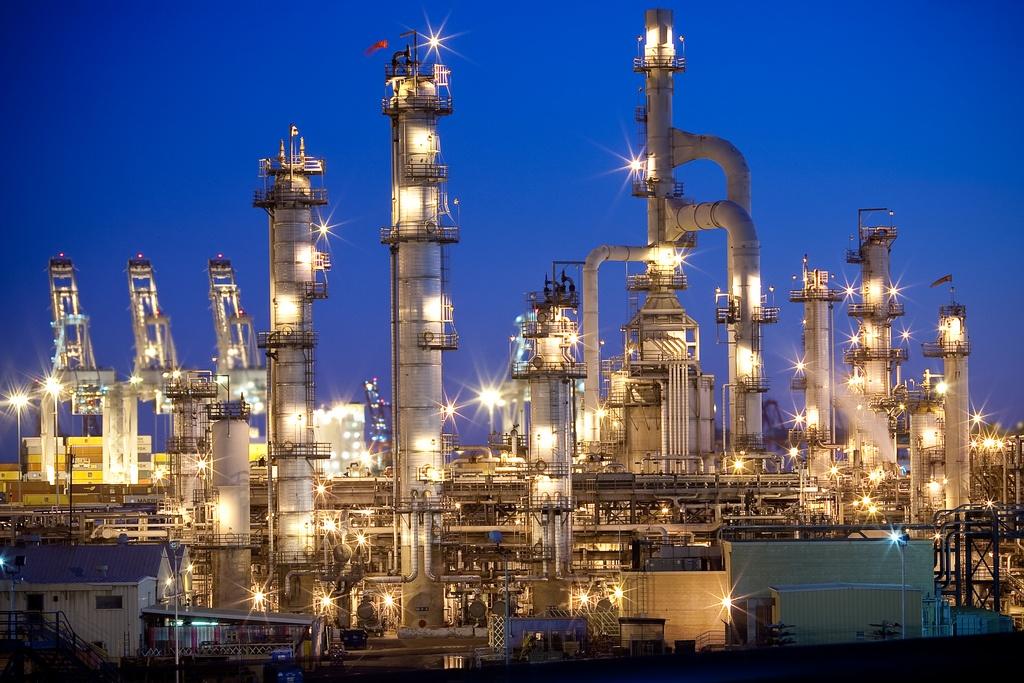
Late last week President Barack Obama announced he would include a $10 per barrel tax on oil in the FY2016 budget that his administration is proposing to Congress. The reason for that proposed levy is that the Obama administration figures the $32 billion that could be raised by such a tax could finance clean-transportation measures and public-infrastructure improvements.
The line item will not pass the Republican-dominated Congress, and even this president would not be able to enact such a fee by executive order (but such an attempt, mind you, would be fun, just to watch the Republicans foam at the mouth and talk about impeachment and executive overreach, again).
But never mind the fact that this proposal will go nowhere. The oil industry, which in the U.S. has arguably had its most productive years under Obama’s “all of the above” energy policy, is already up in arms over the idea of taxing domestic oil production and imports:
“The White House thinks Americans are not paying enough for gasoline, so they have proposed a new tax that could raise the cost of gasoline by 25 cents a gallon, harm consumers that are enjoying low energy prices, destroy American jobs and reverse America’s emergence as a global energy leader,” said American Petroleum Institute President and CEO Jack Gerard.
The cold, stubborn fact, however, is that Americans actually do not pay much for gasoline — and they never have, even when oil prices were hovering at triple-digits per barrel. True, Americans pay anywhere from 30 to 50 percent more than the world’s leading oil-producing countries. But let's take a look at the rest of the world: Hong Kong has the world’s highest gas prices, at about $7.80 a gallon. Most countries in Europe are paying approximately $5.30 to $5.70 a gallon to fill up their cars. The truth is that, out of all the advanced industrialized countries, gasoline prices in the U.S. have always ranked the lowest in the world.
Over the years the U.S. economy has shown that it is resilient enough to withstand high energy prices, as was the case in the late 1990s and a decade ago. The dynamics between energy, economics and consumer behavior are also changing. Despite low fuel prices, electric vehicle sales continue to rise, not fall; and even that defender of conventional economics, Goldman Sachs, predicts a surge in electric car sales in the coming years. EVs are performing better and have become more mainstream, and they're now less about reducing fuel consumption for consumers than great torque, quiet engines, less maintenance and, yes, avoiding that annoying errand of filling up at the station.
If there is any time to prepare for a more crowded future, to upgrade the country’s infrastructure and hedge against the inevitability that oil is a finite resource, the time is now — while fuel prices are at near record lows. This proposed tax as currently written would also be phased in over five years — only incrementally increasing the price of gasoline. And the oil industry’s wailing about price increases and their purported concern for consumers aside, Americans have shown that they are relatively price-insensitive when it comes to the purchase of gasoline.
Energy policy reforms have started worldwide as a reaction to current low prices. In fact, many countries in the Middle East, whether they are oil producers (UAE, Saudi Arabia) or heavy energy importers (Egypt, Jordan) have overhauled, or are considering serious changes, to their energy policies. The issue in the Middle East is the subsidization of fuel prices, which has consumed a massive portion of these countries’ budgets. But those days of cheap fuel prices are ending in that corner of the world.
Meanwhile, across the pond, low petroleum taxes, not to mention the years of energy subsidies for producers here in the U.S., have helped fuel American energy companies’ success over the years. Since World War II, much of the infrastructure built in the U.S. was for a transportation system reliant on oil. It is only fair to have those who have benefited from those policies over the past several decades pay for the upgrades and changes necessary for a 21st-century infrastructure and economy.
Image credit: Arb.ca.gov

Leon Kaye has written for 3p since 2010 and become executive editor in 2018. His previous work includes writing for the Guardian as well as other online and print publications. In addition, he's worked in sales executive roles within technology and financial research companies, as well as for a public relations firm, for which he consulted with one of the globe’s leading sustainability initiatives. Currently living in Central California, he’s traveled to 70-plus countries and has lived and worked in South Korea, the United Arab Emirates and Uruguay.
Leon’s an alum of Fresno State, the University of Maryland, Baltimore County and the University of Southern California's Marshall Business School. He enjoys traveling abroad as well as exploring California’s Central Coast and the Sierra Nevadas.














